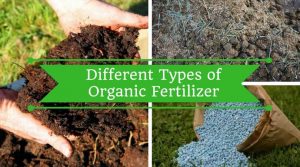(Written By: Zia Ur Rahman Farooqi and Nukshab Zeeshan)
Somewhere, we have convinced ourselves that chicken is a healthier option than cows but eating chicken may hold more dangers than its fellow barn mates. When a chicken is forced to grow to maturity within 50 days and even forced to hatch earlier than it normally would have, it does a lot to the bird. Apparently healthy, but their fodder and living conditions are so foul that the poultry loses pretty much all of its nutritional value and instead becomes a carrier of diseases for its consumers. The most common is the high risk of E. coli, a bacterium that reduces the immunity to many diseases. The least it can do is cause food poisoning and at worst anything could happen. This is not even the worst part. It reduces the ability of antibiotics of helping you to fight the diseases you are now prone to.
Broiler chickens are fed with very high amount of antibiotics, growth hormones and additives. These chemicals can cause changes in the body metabolism. This will also affect the puberty and menopause in females. The chemicals present in it are found in the feces of the birds.
These feces are spread on the land and farm, which can be a disaster for land and the environment. The polluted water can affect the fishes with many types of diseases. So after learning about the disadvantages and risk of eating chicken it is better to save yourself from this dreadful condition. While organically and ethically raised animals are always a better option than not, there’s still plenty of reasons chicken is not a health food. Here are some reasons;
- A serving of chicken contains cholesterol which is linked to clogged arteries and heart disease.
- Grilled chicken may contribute to the development of cancer including breast and prostate.
- Feeding of chicken involves arsenic to make them grow faster. It’s highly toxic to humans and can cause cancer, dementia, neurological problems, and other ailment.
- HCAs (heterocyclic amines) are found in meats cooked at high temperature, including chicken, and have been linked to an increased risk of cancer.
- 83% of fresh, whole broiler chickens purchased has high levels of campylobacter/salmonella bacterium which is the leading cause of food poisoning in the U.S.
- Avian flu may transmit through chicken.
- Highly toxic chicken waste ruins land, seeps into soil and contaminates water, makes air un-breathable.
- Arsenic is widely used in the diet of chicken to increase the weight which is the cause of many diseases like high Breast and Prostate Cancer and cause reduction in Antibiotics in the body and changes the rate of body metabolism.
- Fat, cholesterol and sodium contents increase the risk of cardiovascular diseases such as heart attack and atherosclerosis. Sodium leads to high blood pressure and increased risk of stroke and heart failure. On average, processed meat contains approximately 310 milligrams of sodium per ounce, whereas unprocessed meat has about 77 milligrams. Younger adults should aim for less than 2,300 milligrams of sodium daily, whereas elderly adults and those with risk factors for hypertension should consume less than 1,500 milligrams per day.
Recommendations:
Eating moderate amounts of unprocessed red meat such as lamb is significantly healthier than eating similar portions of processed meat such as chicken particularly in terms of lower risk of heart disease, diabetes and stroke. Furthermore, selecting healthier sources of protein and avoiding chickens can significantly reduce saturated fat, cholesterol and sodium content.
Written By:
Zia Ur Rahman Farooqi
Nukshab Zeeshan
MSc. (Hons.) Environmental Science
Note:
- For publishing your articles at Agrihunt:
Email us at: [email protected]
Contact No: 0303-4309053
Publication letter would be awarded to our writers(After 10 publications at least.)









